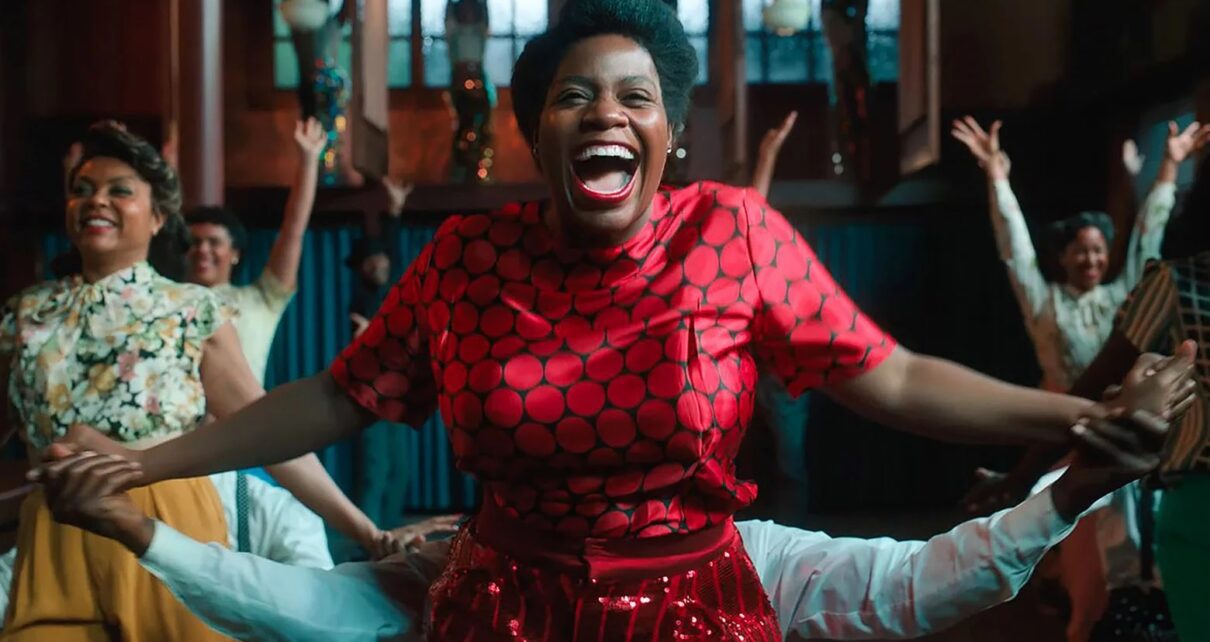It takes a certain heft of brass balls to assume one can improve upon a Steven Spielberg narrative. Oh, I’m certain it can be done … Spielberg did, after all, direct War of the Worlds and Hook. And, yet, still we haven’t identified the sad sack who says, “I’m going to do it … only better!” Not for those films, at least. For The Color Purple, however, we have an attempt. Was it successful? No.
I think the idea here was to take the sad melodrama, hire singers instead of actors, punctuate every scene with music, and *presto* blockbuster! “Dreamgirls ain’t got nothin’ on us,” right?
The problem with this scenario is whenever there isn’t music on screen, this edition of The Color Purple suffers. It’s depressing, long, and painful to watch.
The juxtaposition of tones is set immediately when the film opens with “Huckleberry Pie/Mysterious Ways” a mash-up of two teenage sisters playing together and then taken over by “God is good”-themed song and dance. Wow! What a start! Love it!
One of the girls is pregnant. OK, that’s a tad cringe cuz she’s so young, but … tell me more.
Pregnant with her father’s child. Ugh.
That her father is giving away against the girl’s wishes. Ugh.
The girl not only has no say in the matter; she’ll be punished severely if she questions her father. Ugh.
Just days after giving the baby away (the second time dad has done this, btw), the father trades his daughter to the local womanizing piece-of-shit. Ugh.
… who is physically as well as psychologically abusive. Ugh.
And attempts to rape the sister he covets more than his new wife. Ugh.
… when she denies his attempts, he banishes her forever and forbids his new wife to see or hear from her sister ever again. Ugh.
♪“God is good! God is good! Purple is proof that God is good!” ♫ Sing it, y’all!
The girl sold into marital slavery is Celie (Phylicia Pearl Mpasi young, Fantasia Berrino older). Her screen-chewing abusive husband is “Mister” (Colman Domingo). And the sister she may never see again is Nettie (Halle Bailey, who probably gets banished to “Under the Sea”).
Speaking of The Little Mermaid, here is what this movie feels like: Take The Little Mermaid and have her sing some heart-felt, uplifting ballad about empowerment or the future, but instead of having her make a deal for legs, each scene ends with Ursula the Sea Witch slapping her around. This is what The Color Purple felt like for about two hours.
Now, how can I recommend such a film? Well, the music really was heart-felt, uplifting, and empowering.
If this film were entirely about the music, I might love it. But The Color Purple is about suffering and pain. We see Celie face decades upon decades of trouble, with moments between 1909 and 1947 sporadically chosen for impactful sorrow. Amazingly, Colman Domingo doesn’t seem to age in that time.  Huh. Good for him. Were that he the only menace on screen. Mister’s constant abuse is present in almost every scene, and yet it’s not alone. Almost every single man in the film is abusive and controlling. I’m told this is about power dynamics and not straight misogyny, but it’s hard to tell the difference when all the women sing about freedom and all the men worship control.
Huh. Good for him. Were that he the only menace on screen. Mister’s constant abuse is present in almost every scene, and yet it’s not alone. Almost every single man in the film is abusive and controlling. I’m told this is about power dynamics and not straight misogyny, but it’s hard to tell the difference when all the women sing about freedom and all the men worship control.
The oddest dynamic lies between Celie and her father’s mistress, local celebrity Shug Avery (Taraji P. Henson). While Mister makes a mockery of his marriage during Shug’s visits, we applaud such because his lustful attention temporarily supersedes his abusive attention. Yes, Mister, please go hit on Shug so you’ll stop hitting on Celie. Ugh.
The Color Purple is long and -more importantly- feels long and I enjoyed very little that didn’t occur in music form. That said, if you aren’t in tears by the end of this film, you might be a monster. I’m going to prefer the Steven Spielberg version to this one 10 times out of 10, BUT, I will probably give the soundtrack several more listens before I’m done with it.
There once was a girl named Celie
Who got something of a raw dealie
Sequestered, abused
And otherwise used
It will be decades before she might healie
Rated PG-13, 141 Minutes
Director: Blitz Bazawule
Writer: Marcus Gardley, Alice Walker, Marsha Norman
Genre: Singing the blues away
Type of being most likely to enjoy this film: Fans of the musical, I imagine
Type of being least likely to enjoy this film: People who loathe domestic violence



